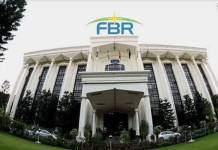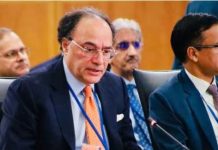Lahore: The Ferozepur Road Industrial Association Senior Vice Chairman Shehbaz Aslam has reiterated his demand of passing on full relief of cut in oil prices in the global market to the industry, besides bringing key policy rate to single digit.
Shehbaz Aslam, who is also EC member of the PIAF, in a statement, demanded the petrol price should be cut further, besides reducing taxes on sale of all fuel products, as the caretaker government announced that the prices of petrol would remain unchanged at Rs281.34, slashing the high-speed diesel (HSD) by just Rs 7 per litre, for the next fortnight.
FRIA SVC said that oil prices have experienced a steep decline causing worries in the global markets, coupled with the output war between Palestine and Israel. He stressed that significant cut in oil rates will not have any negative impact on the government as international oil prices have sunk tremendously.
In a notification, the Finance Division stated that the government of Pakistan has decided to maintain the current prices of petrol for the next fortnight. The country fixes fuel prices on a fortnightly basis after evaluating fluctuating international energy market costs and the rupee-dollar parity to transfer the impact on domestic consumers. On November 15, the interim government reduced the petrol and diesel prices by Rs2.04 and Rs6.47 per litre, respectively.
Shehbaz Aslam said that government is charging zero general sales tax (GST) on all petroleum products while the rate of petroleum levy (PL) on petrol and diesel is Rs60 per litre. Diesel is widely used in the transport and agriculture sectors and the reduction in its price could bring inflationary impact down. He said that inflation is expected to surge in November, primarily due to a massive hike in gas prices,
The consumer price index (CPI), which measures changes in the prices of goods and services, is likely to rise to 28.6-29.6% year-on-year in November, up from 26.9% in October.
The PIAF leader predicts that the inflation rate will register a 2.1% month-on-month jump, defying earlier expectations of a gradual slowdown from September onwards.
He estimates that the CPI will increase by 2.9% month-on-month, primarily driven by an 11.6% jump in the housing index due to gas price revision and a 1.6% increase in the food index.
He said that the government escalated the petroleum levy on POL products for pocketing additional revenue, as the levy on diesel was increased to Rs60 per litre. With a view to improve the access of finance to SMEs, the FRIA proposed that the government should introduce a scheme of interest-free loans for the documented and taxpaying SMEs. Besides, the existing credit limits of the trade and all kind of industry which have taken loans from various banks should be enhanced.
Shehbaz Aslam recommended the government to defer electricity and gas bills of the whole businesses for a period of six months. He proposed the government that source of income should not be asked on any kind of investment in all sectors of the economy for the next two years. Senior vice chairman observed that the impact low economy has badly affected business and industries, stressing the government to bring down sales tax to single digit while key policy interest rate to at least 5 percent in order to facilitate growth of business activities, improving revenue, besides helping economic revival. He said that traders, industrialists, and the whole business fraternity have always played a key role during trying times and now, in the current crisis, they need help to run the economy. He observed that the government had made commitments with the International Monetary Fund for increasing non-tax revenues in order to compensate the revenue shortfall. The revised fiscal plan relied heavily on high the petroleum levy. PIAF leader said that small industry is facing declining demand in markets and facing problems in executing foreign orders, as the real problem is the high cost of production and a long list of duties and taxes. The government should give priority to the small businesses, by reducing its taxes to strengthen overall economic growth in the country.

















